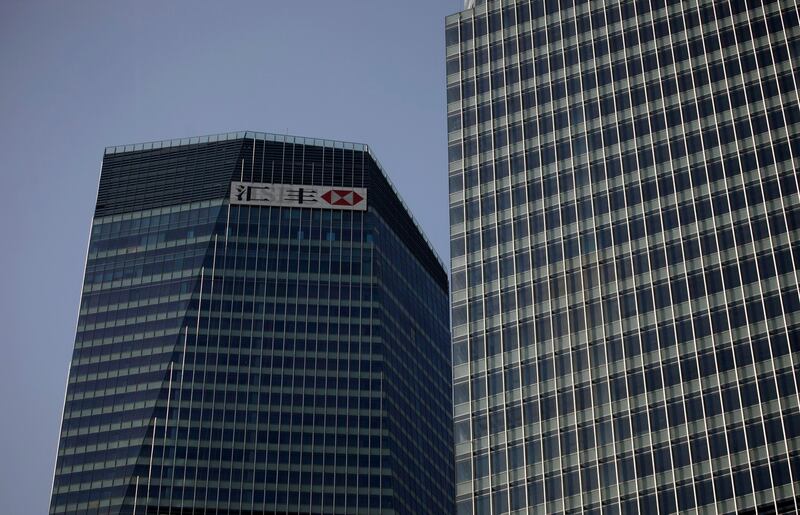In recent days, China’s state media have spared no effort in posting upbeat narratives even as the latest economic indicators for October showed a patchy recovery.
Some reports hailed rosy projections from foreign investment banks as the basis of the argument such as the one in the Economic Daily on Friday, which cited the likes of Goldman Sachs and UBS Group. The paper said these banks believe that the “important driver of the accelerated recovery of [emerging markets in 2024] is China’s economic development.”
The slew of articles talking up the economic landscape comes as foreign interests continued to shrink for the fifth month in October, with foreign direct investments (FDI) falling 9.4% to 987 billion yuan (US$138 billion) in the first 10 months of the year, compared with the year-earlier period.
Furthermore, China recorded its first-ever quarterly deficit in FDI by balance of payments for July-September, the latest data available, at US$11.8 billion. The measure records monetary flows linked to foreign-owned entities in China.
Andrew Collier, managing director of Orient Capital Research, said foreign investors will have little appetite in placing their money in China until the structural adjustments in the economy are completed or the end is in sight.
“There will continue to be opportunities in certain pockets, including electronic vehicles, fintech, AI, and some supply chains, but they are relatively small compared with the larger industrial base and property,” he told Radio Free Asia.
“China will always be important to the global economy but the peak growth days are over for the foreseeable future.”
Amid the stuttering post-COVID recovery, Beijing is also grappling with economic structural challenges, coupled with global slowing growth and a cautious improvement in bilateral relations with the United States following last week’s summit between the two’s leaders Xi Jinping and Joe Biden in San Francisco.
The drag from the real estate market crisis, underscored by indebted property developers that have defaulted on creditors and implicated overseas investors, is playing up on the broader economy. A battered property sector means slower land sales, a crucial lifeline for the coffers of local governments who are already under the weight of overextended local government fund vehicles established to fund infrastructure projects that struggled to generate sufficient returns to cover their obligations.
Measures to shore up the property market included relaxing borrowing rules like reducing mortgage rates and the downpayment ratio and raising the liquidity of banks by lowering the reserve amount they need to maintain. Chinese regulators have also ordered banks and financial institutions to help stabilize the property market by keeping financing channels available for developers.
Banking
But in urging banks to step up efforts, authorities are reiterating the need to manage risks better and preserve the soundness of the financial system. Again, they borrowed the views of China-based foreign banks like HSBC and Standard Chartered, via state media reports.
The Chinese Communist Party’s (CCP’s) mouthpiece People’s Daily cited these foreign institutions for being “very optimistic of the potential of the China market.” HSBC, it said, recorded a 54% increase in net profit to more than 6 billion yuan, and the bank would have invested an additional 3 billion yuan between 2021 and 2025.

Standard Chartered, on the other hand, would have invested US$300 million in areas including digital transformation, expanding its network and risk management between 2022 and 2024.
“All the western banks have to say positive things about the Chinese economy otherwise they will be in trouble with the regulators and the leadership in Beijing,” said Collier. “However, a number of Hong Kong-based banks, including HSBC, earn the majority of their profits from mainland activities and therefore they are forced to put all their eggs in one basket as they have few alternatives.”
Outlook for 2024
Pundits are hopeful for more stimulus policies when a revival of market-oriented reforms may be unlikely due to the political climate where the state exerts greater control over the economy including a once vibrant private sector.
Such indications could come next month at the CCP’s annual Central Economic Work Conference where officials meet annually to set policy plans and the outlook for the world’s second-largest economy.
In its forecast, UBS is expecting China’s 2024 growth to be in the mid-4% and Goldman Sachs at 4.8%.
Goldman Sachs analysts in their forecast for next year said several reasons constitute “a challenging longer-run growth outlook.” They are a persisting property downturn and ongoing demographic deterioration – with a shrinking working-age population – that requires China to reinvent its growth model. Additionally, while there may be a modest cyclical rebound in exports, it is unlikely to reverse the ongoing diversification of global value chains away from China and toward some of its peers.
Still for 2023, China's central bank governor Pan Gongsheng said the country is on track to achieve its targeted 5% growth.
Edited by Taejun Kang and Mike Firn.
